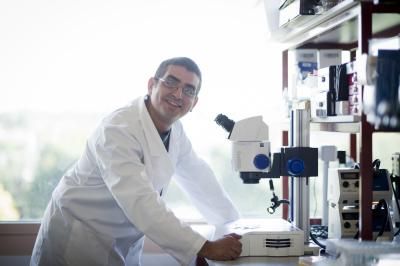UT-Battelle licenses tissue regeneration technologies to NellOne Therapeutics, Inc.
Advertisement
In a major step toward commercialization of a promising therapeutic treatment, Oak Ridge National Laboratory contractor UT-Battelle has exclusively licensed patents on inventions based on the Nell-1 gene to NellOne Therapeutics, Inc., a company spun out of the Department of Energy laboratory.
The protein therapy treatment under development takes advantage of the Nell-1 gene's cell-signaling pathway that controls tissue growth and maturation in mammalian organs. The foundation for this therapy is research performed by Cymbeline Culiat, who as an ORNL systems genetics researcher identified the role that the Nell-1 pathway plays in tissue growth and maturation. Today, Culiat is leading the NellOne research effort to translate the Nell-1 pathway discoveries into a therapy that restores both mass and function to damaged human tissues, such as heart and skeletal muscle.
If successful, the protein therapy could improve the lives of victims of heart attacks and severe muscle wounds. Other therapies, such as stem-cell treatments, have succeeded in triggering tissue formation but fall short in restoring the actual function of the tissue.
"Our executing this license is confirmation from NellOne that sufficient proof-of-principle experiments have been completed and that the company is progressing toward the commercialization of an extremely promising technology that could one day vastly improve the lives of countless heart patients," said Tracy Warren, NellOne chief executive officer and Battelle Ventures general partner.
Most read news
Other news from the department science

Get the life science industry in your inbox
By submitting this form you agree that LUMITOS AG will send you the newsletter(s) selected above by email. Your data will not be passed on to third parties. Your data will be stored and processed in accordance with our data protection regulations. LUMITOS may contact you by email for the purpose of advertising or market and opinion surveys. You can revoke your consent at any time without giving reasons to LUMITOS AG, Ernst-Augustin-Str. 2, 12489 Berlin, Germany or by e-mail at revoke@lumitos.com with effect for the future. In addition, each email contains a link to unsubscribe from the corresponding newsletter.
























































